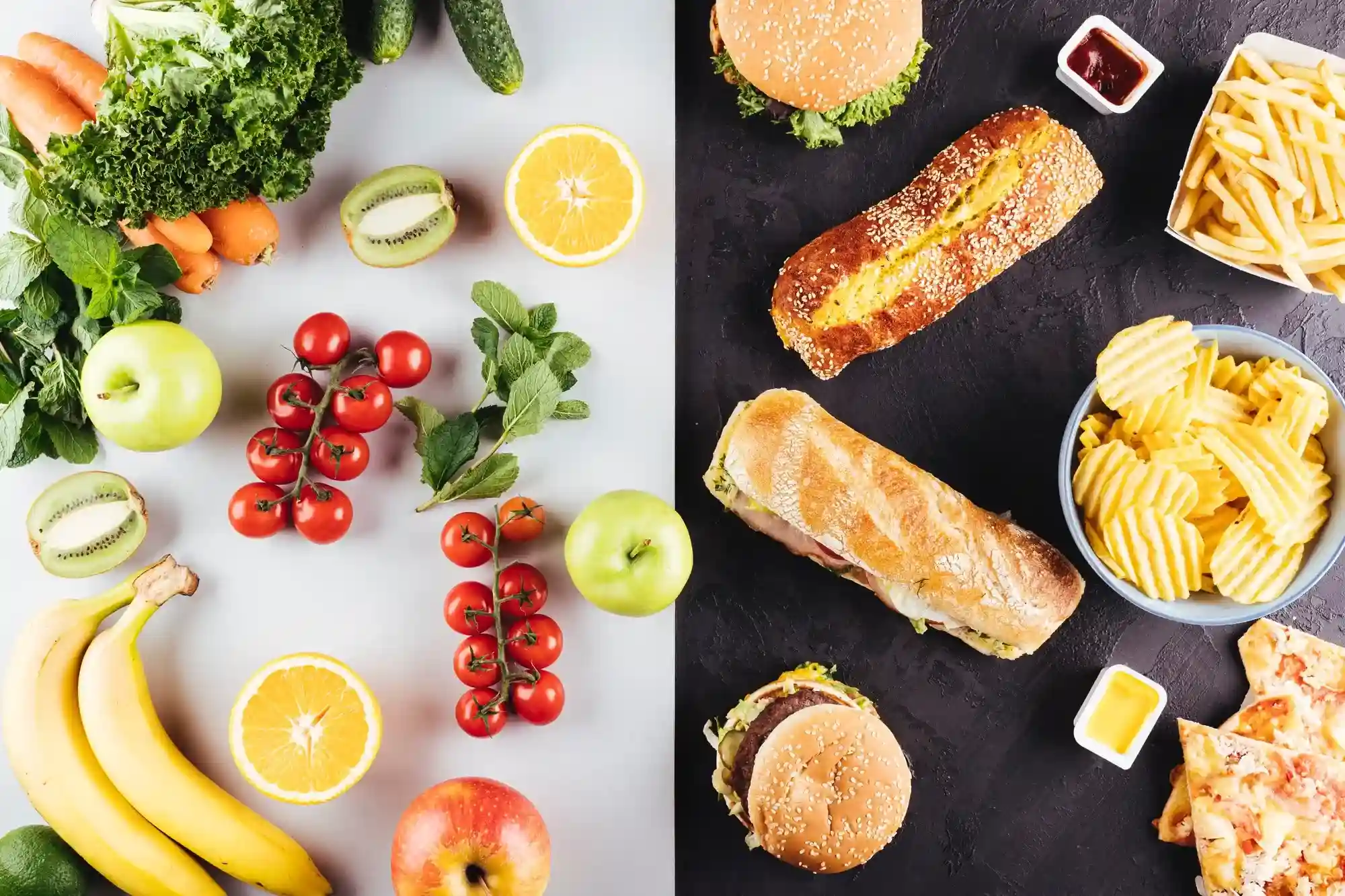What Foods to Avoid After Heart Valve Replacement Surgery for a Smooth Recovery?

You’ve just had heart valve replacement surgery, and now you’re on the road to recovery. While there are many things to consider during this time, your diet is one of the most important factors in your healing process. The foods you eat can either support your healing or complicate the process.
There are specific foods to avoid after heart valve replacement surgery, as they can interfere with your medications, delay recovery, and increase the risk of additional heart complications. Let’s explore these foods and why they should be kept off your plate during recovery!
What role does diet play in heart health?
Your diet is like the fuel for your heart. After heart valve replacement, your heart needs to heal and function as efficiently as possible. Eating the right foods can support healing, manage inflammation, and maintain healthy blood pressure and cholesterol levels. On the flip side, eating the wrong foods can slow your recovery, put extra stress on your heart, and even undo some of the benefits of your surgery.
Top foods to avoid after heart valve replacement surgery
So, what are the foods to avoid after heart valve replacement? Here’s a list of foods that can interfere with your recovery and make your heart’s healing process more difficult.
Foods high in saturated and trans fats
Consuming saturated and trans fats can cause serious damage to your heart. They raise your LDL (bad) cholesterol levels and can lead to plaque buildup in your arteries. This increases the risk of complications like clogged arteries or even a heart attack. And when you’re just recovering from a major surgery like valve replacement, you can only imagine how harmful it can be.
These unhealthy fats can also increase inflammation in your body, which can further slow your recovery process.
It’s best to avoid:
-
Deep-fried foods like chicken, French fries, and doughnuts
-
Processed meats like bacon and sausages
-
Full dairy products, including butter, cream, and cheese
Reducing these fats will help you balance your cholesterol levels and support your healing. Research has shown that people who eat healthy fats like nuts and avocados instead of saturated or trans fats have a low risk of heart disease. In fact, the American Heart Association advises keeping saturated fats to under 6% of your total daily calorie intake.
Processed and spicy foods
Processed foods often contain high amounts of sodium, unhealthy fats, and artificial additives. All of these are harmful to your overall heart health and can delay recovery.
Spicy foods, though flavorful, can cause digestive discomfort and irritate your stomach. They can also trigger acid reflux, which may lead to discomfort and potential heartburn. This discomfort can add unnecessary stress to your body and interfere with your healing process.
Try to avoid:
-
Fast food
-
Pre-packaged meals
-
Canned soups
-
Spicy snacks (e.g., hot chips, spicy dips)
It's always good to stick to mild, easily digestible foods that nourish your body without causing any irritation.
Foods high in vitamin K
An important function of vitamin K is blood clotting. However, it can interfere with blood-thinning medications such as warfarin, commonly prescribed after heart valve replacement surgery.
If you consume large or inconsistent amounts of vitamin K, it can make it harder for your doctor to manage your anticoagulant treatment. Research has shown that a sudden increase or decrease in vitamin K is dangerous for people on blood thinners. Consuming more can lead to increased clotting activity, while lower intake can cause excessive bleeding.
Limit foods packed with vitamin K including:
-
Leafy greens (e.g., spinach, kale, collard greens)
-
Broccoli
-
Brussels sprouts
-
Certain vegetable oils (e.g., soybean oil, canola oil)
It’s important to keep Vitamin K intake consistent after surgery. This consistency will help keep your medications working as they should, reducing the risk of dangerous blood clotting or bleeding.
High sodium foods
High intake of salt or sodium can also put stress on your heart, which can complicate your recovery after heart surgery. Research indicates that high sodium intake is responsible for about 14.6% of cardiovascular disease deaths globally. The American Heart Association advises that sodium intake should not exceed 2,300 mg per day.
When you consume excess sodium/salt, it can cause your body to retain fluid. This can lead to high blood pressure and increasing strain on your heart. This can also increase the risk of stroke, heart attack, and heart failure. After heart valve replacement surgery, it's important to manage your blood pressure to avoid complications.
Some high-sodium foods to avoid heart valve replacement are:
-
Canned vegetables and soups
-
Processed meats (e.g., bacon, hot dogs, sausages)
-
Frozen meals
-
Fast food
Reducing sodium helps to lower blood pressure, reduce swelling, and prevent future cardiovascular problems. Be sure to read food labels and opt for fresh, homemade meals whenever possible to avoid hidden sources of sodium.
Refined sugars
Refined sugars, found in many sugary foods, are full of empty calories and provide little nutritional value. Eating too much sugar can harm your heart in several ways. It can lead to weight gain, raise your triglyceride levels, and increase your risk of conditions like metabolic syndrome. All of these are harmful to heart health.
Avoid:
-
Candies
-
Sodas
-
Baked goods (like cakes, pastries, and cookies)
-
Sweetened beverages
Cutting back on these sugary snacks helps protect your heart in the long term, especially after a major procedure like heart valve replacement.
Alcohol
Alcohol can interfere with your medications, raise blood pressure, and trigger irregular heartbeats, making it risky after heart surgery. Even though a small amount may not seem harmful, alcohol can reduce the effectiveness of medications used to prevent blood clots or control blood pressure. It can also increase the chances of arrhythmias (irregular heart rhythms), which is concerning for anyone recovering from heart surgery.
Additionally, alcohol acts as a diuretic, which can lead to dehydration and put added strain on your heart. To support your recovery, it’s best to avoid alcohol so your medications can work properly and your heart can heal. If you’re thinking about drinking, it’s a good idea to check with your doctor to know when it’s safe to reintroduce alcohol into your diet.
Caffeinated beverages
High caffeine intake has been linked to irregular heartbeats and higher blood pressure, both of which can make recovery more difficult. In addition, when you consume excess caffeine, it dehydrates you and disrupts your normal sleep patterns. And since rest is important for recovery, disrupted sleep can slow down the healing process.
Cutting back on coffee, tea, and other caffeinated drinks can help keep your heart steady and improve your recovery process.
At Quality Care Global (QCG), we’re here to help you get affordable treatment abroad. If you’re considering heart valve replacement or need guidance on your recovery, don’t hesitate to contact us. We’re ready to assist you every step of the way!
What foods are good after heart valve replacement?
Now that we've talked about what to avoid after heart valve replacement, let’s look at the foods that can actually help you recover and support your heart’s healing process.
Here are some heart-healthy foods you should include in your diet:
-
Lean proteins: Think about adding chicken, turkey, or fish to your meals. Fatty fish like salmon is especially beneficial because it’s rich in omega-3 fatty acids, which are good for your heart.
-
Whole grains: Opt for wholesome grains like brown rice, quinoa, oats, or whole wheat bread. These are packed with fiber, which is great for your overall health.
-
Fruits and vegetables: Load up on fruits like berries and apples, and vegetables such as leafy greens, carrots, and tomatoes. They provide essential vitamins and antioxidants to help your heart heal.
-
Healthy fats: Include sources of good fats in your diet like olive oil, avocado, and a variety of nuts. These help reduce inflammation and keep your cholesterol levels in check.
These foods are rich in the nutrients your body needs to recover, improve your heart health and lower inflammation. They’ll not only help you heal but also support your heart in the long run. If you ever need help crafting a balanced meal plan, a chat with your doctor or a dietitian can provide helpful advice tailored to your needs.
Bottom line
In conclusion, recovery from heart valve replacement surgery requires time, patience, and careful attention to your diet. Avoiding foods high in unhealthy fats, sodium, sugar, and caffeine will support your heart’s healing process. Keep your vitamin K intake balanced and avoid alcohol until your doctor approves.
By making these adjustments and choosing heart-healthy options, you’re giving your body the best opportunity to recover and keep your heart healthy over time. If you’re ever unsure about your diet, it’s helpful to consult your doctor or a registered dietitian for advice.

